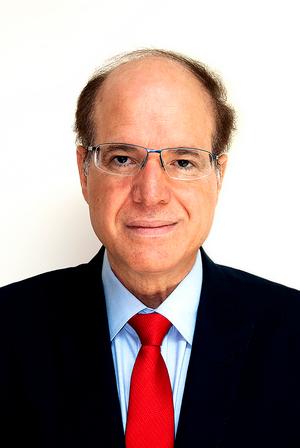Interview with longlisted author Nasser Iraq
15/02/2023

When did you begin writing The Antikkhana and where did the inspiration for it come from?
I began writing the first sentence of The Antikkhana at dawn on 30th October 2020, but the central idea for the novel started to invade my consciousness more than ten years ago. To be exact, it was when I visited the Louvre Museum in Paris, in May 2012. I was overwhelmed by the vast numbers of ancient Egyptian artefacts held in the Egyptian section of the museum. I remember well how I painstakingly counted them. It was a treasure trove numbering more than twenty thousand pieces. At that time, a thousand questions exploded in my mind: how did these artefacts travel from the depths of the earth in Egypt and end up in the exhibition halls of the Louvre in France? Who persevered in the search for them? What was the role of Egyptians and foreigners in excavating and discovering them? When exactly were they found? When did they leave Egypt, and by what means? All these questions persisted from one year to the next. I read more about the ancient and modern history of Egypt, to get convincing answers.
As part of my research, I read about the era of the Khedive Ismail who ruled Egypt between 1863 and 1879. I discovered that he ordered a school to be founded to teach ancient Egyptian, which he called “The School of the Ancient Egyptian Language”. He invited the German archaeologist Heinrich Brugsch to come and direct this school, which only lasted seven years, before the Khedive himself closed it.
The amazing thing is that the first Egyptian specialising in archaeology was one of the students at this school. His name was Ahmed Kamal Pasha (he is one of the main protagonists in my novel). The initial concept of the novel came to me when I read about that historical period of educational enlightenment, and from that point onwards, thoughts and ideas for the novel came in rapid succession and, fuelled by my vivid imagination, grew and developed into their final form as I spent hours every day writing.
Did the novel take long to write and where were you when you finished it?
The Antikkhana took over my life, thoughts, imagination and feelings for a whole ten months, approximately. The characters of the novel were my friends who were there with me in the morning and evening, and they even visited me in my sleep more than once. I remember well how Mr Ahmed Kamal told me off, in a dream, because I had made him love Josephine, even though he was married and supporting two sons, and so I said to him: “no-one can control the heart, kind friend. Let us wait and see how things will turn out for you, Mr Ahmed”.
The interesting thing is that I remember this dream well, with all its details, and when it was announced that The Antikkhana had reached the longlist, I remembered it and I smiled.
I should just mention that I worked daily on The Antikkhana between Cairo and Dubai until it was ready, and then I sent it to the publisher, Dar al-Shorouk.
Do you have writing rituals?
I only write in the very early morning, sitting in my office from 5am onwards. I also write every day, and don’t stop this morning writing habit unless I am unwell. I am alone with the laptop every day from 5am until 9am at the latest, and after that I don’t write. I think that the minds of human beings have an amazing clarity after we wake up in the early morning. The imagination’s flow is released. The writer has to tame his language and adapt it into the form in which he wishes to convey ideas, events and happenings.
I also never write unless there is absolute quiet, without even a sound, whisper or musical note, even a very faint one. If a sound disturbs this complete silence, even my son’s footsteps after he wakes up, I immediately stop and don’t return to writing until the next day. Each morning, I also subject to intense scrutiny what I wrote the day before, examining, polishing and developing it. Then I continue my journey with the events of the novel. In this way, every day I review past work, before adding a new brick to the fictional construction being carefully built, aiming at perfection, as far as it lies in my power.
What is your next literary project after this novel?
I have nearly finished a new novel, which I will send to the publisher soon.
